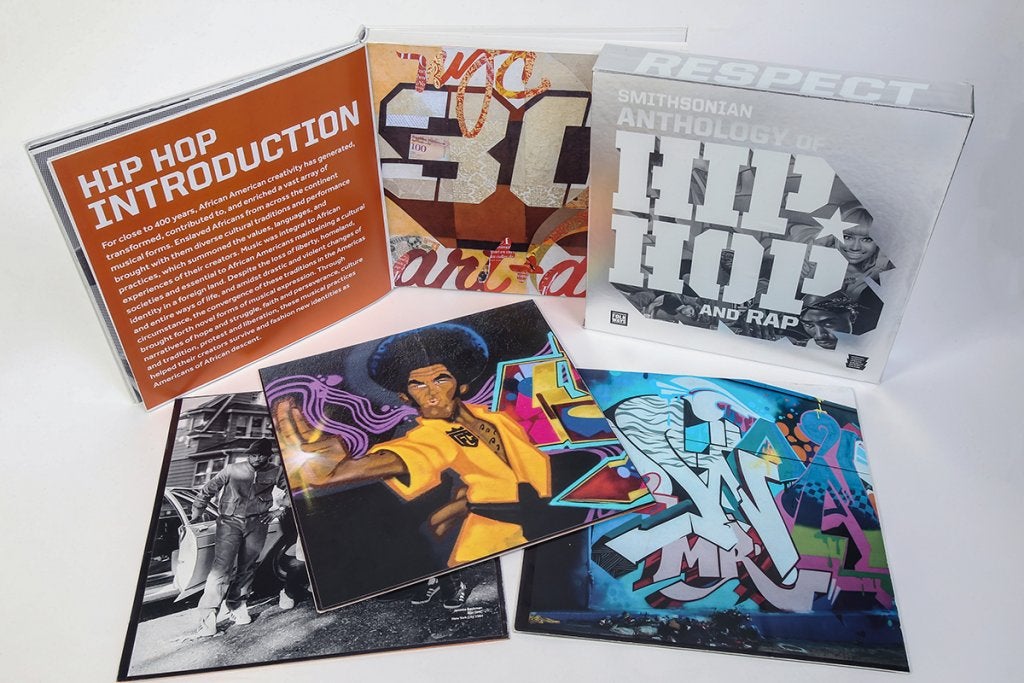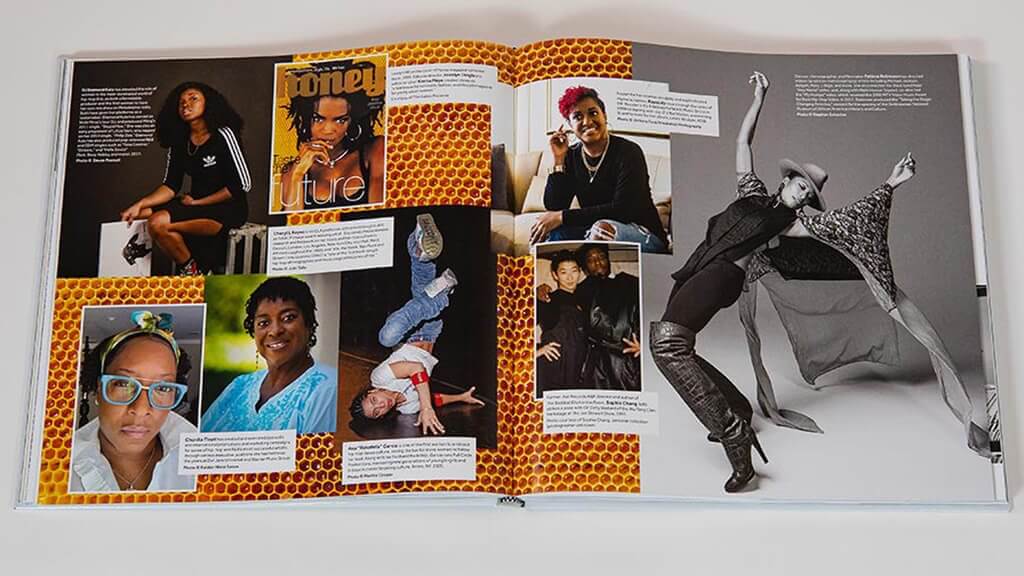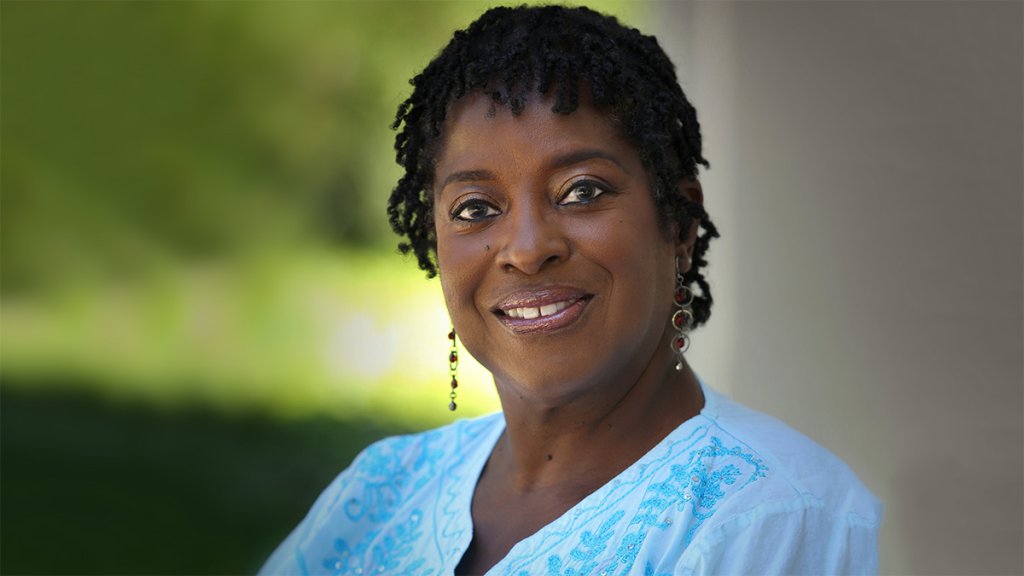Cheryl Keyes was in the sixth grade, watching her older brother perform in a high school band concert, when she decided what instrument she would play: the flute. She was already studying piano, and her life was filled with music. Why the flute? “I admired the flautists. They were always the ones sitting in the front row in concert band,” she said. “And I wanted to sit in the front row.”
The front row has been her place ever since. Dr. Cheryl Keyes has authored a prize-winning book on the ethnography of hip hop and rap, produced two award-winning albums on her own record label, is a Professor of Ethnomusicology, Global Jazz Studies at The UCLA Herb Alpert School of Music and is currently chairing UCLA’s Department of African American Studies. And earlier this past year, she made headlines as one of ten members of an executive committee that selected music for the Smithsonian Museum’s long-awaited Smithsonian Anthology of Hip Hop and Rap.

This last bit is a big deal. The Smithsonian Folkway Recordings are legendary, with a legacy that dates back to 1948, when Moses Asch founded Folkway Records to document and preserve “the people’s music.” (The Smithsonian acquired the label in 1987.) The label includes thousands of records that give voice to traditions that otherwise might be banished from memory. When the Smithsonian set about creating an anthology of vital hip hop recordings in 2014, they assembled a team of leading industry professionals, journalists, musicians and academics who nominated 900 songs. The final selection was entrusted to an executive committee of ten.

Cheryl Keyes was the lone woman academic selected for the committee, sharing space with industry luminaries the likes of 9th Wonder and Chuck D of Public Enemy. She was selected over some who had written scholarly books on hip hop, but the Smithsonian’s choice of Dr. Keyes was a natural one. It was Keyes, after all, who undertook groundbreaking ethnographic field research in the 1980s, at a time when the genre was well out of the mainstream and dismissed as unworthy of serious study. Her book, Rap Music and Street Consciousness (2002) is “one of the first book-length hip hop ethnographies and musicological histories of rap,” as cited in the Anthology’s accompanying 300-page book.
Keyes first encountered hip hop as a graduate student at Indiana University, in her first ethnomusicology class. “I entered thinking I would work on jazz,” a natural predilection given the high place jazz held in Keyes’s community and education and life. “But when I heard rap music, it was over.” Here were all the sounds of her childhood, but in recordings that emanated from the Bronx. “The sounds were different, yet familiar. They sounded like the preacher, they sounded like the cheers, they sounded like my Aunt Bernice.”
Keyes had found her scholarly passion, documenting the folklore and musical connections from West Africa to New York City and her southern roots. She explored the verbal utterances and musical sound culture that comprise the continuum of Black expressive culture. (Her four-decades of field research all over the world is housed at the UCLA Ethnomusicology Archive.)
Formidable scholarly chops aside, Dr. Keyes was first and foremost a musician and composer. She recorded her first song, “CK Blues” in the 1970s, while a music major at Xavier University of Louisiana. Circumstances connected her to the New Orleans rhythm and blues legend Eddie Bo. He admired her song and invited her to perform piano. Bo convinced Keyes to change the title of her piece to “First Time Around,” and included it on his 1977 album, “The Other Side of Eddie Bo.”
Dr. Keyes has continued performing and writing music even after she earned a doctorate and joined the ethnomusicology faculty at UCLA. In 2008, she founded Keycan Records. “Doing it yourself (DIY), that’s a big part of African-American culture.” It’s also a matter of history. Keyes knows something about the music industry’s historic relation with African Americans, and therefore knows something about the value of controlling masters and rights to her music. And it has paid off. Keycan Records’ very first album, “Let Me Take you There,” won an NAACP Image Award for Outstanding World Music Album. Her double-single, “Hollywood and Vine,” won a Global Music Award.
“I’m a songwriter. I pride myself in writing songs that tell stories.” But her musical talent is, much like her long career, more varied than just songwriting. She composes, orchestrates, and records many of the parts performing vocals, piano and flute. Her musical compositions show off her broad musical range and lush palette.
So, what’s next? More music, of course, with the hope that Keycan Records provides an entrée into collaborations in film, television, and other ventures. Nonetheless, being a part of the executive committee that stewarded the Smithsonian Anthology of Hip-Hop and Rap—9 CDs of 129 tracks—is, for now, a fitting bookend to her long scholarly study of beats and rhymes.
